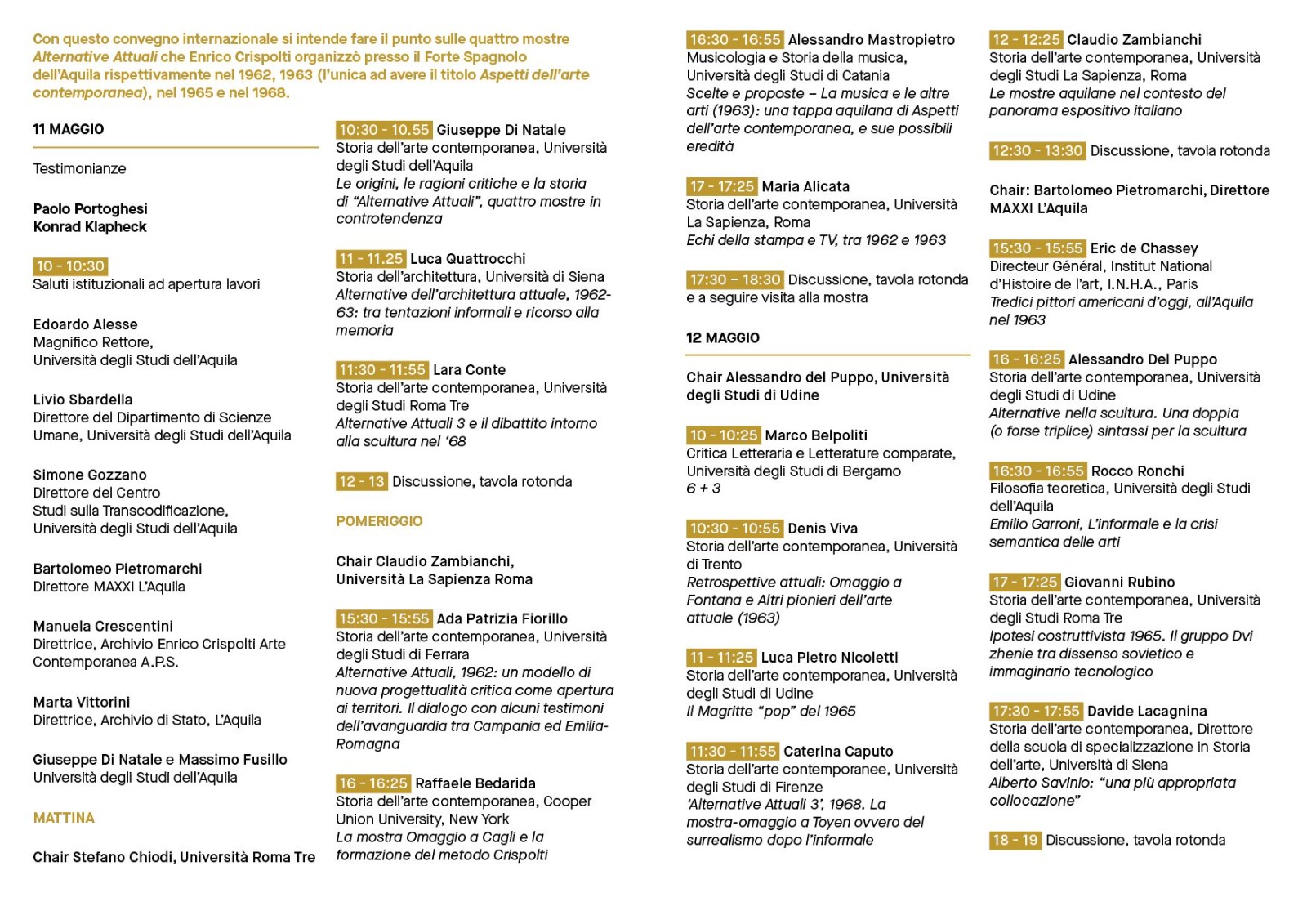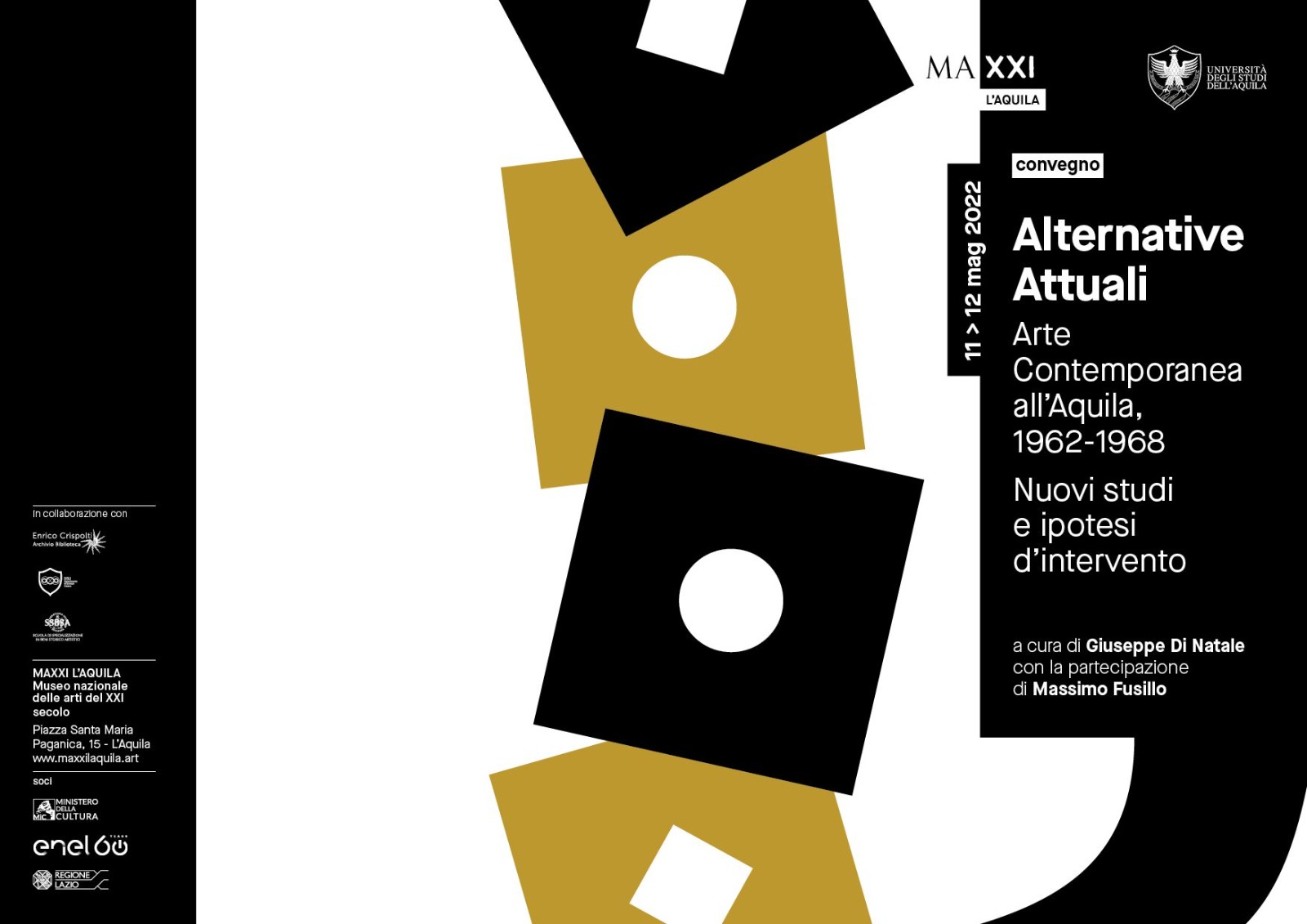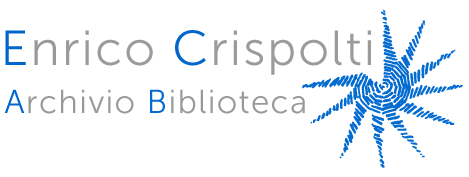ENRICO CRISPOLTI AND “Alternative Attuali”
PROTAGONISTS OF TWO DAYS AT MAXXI L’AQUILA
On May 11 and 12, the conference takes place at Palazzo Ardinghelli and is organized in collaboration with the University of L’Aquila
curated by Giuseppe Di Natale with the participation of Massimo Fusillo
The documentary exhibition on the four editions of “Alternative Attuali” can also be visited in the museum from 11 May to 11 June
11-12 May 2022 | Works start at 10 am
MAXXI L’Aquila – Sala della Aviaera
download here the PDFs of the original catalogs 1962/1963/1965/1968 https://www. Archiviocrispolti.it/ junior- library -digitale/
L’Aquila, May 5, 2022 – On May 11 and 12, 2022, in the Sala della Aviary of the MAXXI L’Aquila, it comes back to live the intuition of Enrico Crispolti who transformed L’Aquila in the center of contemporary art during the 60s, entering in direct competition with the big capitals through four editions of “Alternative Attuali” and proposing an innovative idea of exhibition.
Palazzo Ardinghelli hosts the conference “Alternative Attuali” – Contemporary Art in L’Aquila, 1962-1968. New studies and intervention by the art historian and lecturer at the University of L’Aquila, Giuseppe Di Natale with the participation of Massimo Fusillo, professor of Comparative Literature and Theory of Literature at the University of L’Aquila . The conference is promoted by the Chair of Contemporary Art History of the University of L’Aquila, by the Department of Excellence – DSU Univaq and by MAXXI L’Aquila, with the patronage of the Enrico Crispolti Arte Contemporanea APS Archive and the collaboration of the School of Specialization in History of Art of the University of Siena.
The two days of study will offer an important opportunity to retrace the four editions of the exhibition “Alternative Attuali” organized by Enrico Crispolti – one of the most authoritative art historians in Italy and curator in 1976 of the Italian section at the Venice Biennale – at the Spanish Fort of ‘Aquila in 1962, 1963, 1965 and 1968. In these occasions, the capital of Abruzzo became an important point of reference for the national artistic panorama. This was, in fact, the debut of an alternative concept of exhibition compared to those in vogue after World War II: Crispolti proposed a concrete alternative to the exhibitions in the Venice Biennale proposing an original idea of exhibition based both on critical and methodological structures, which saw also the noteworthy presence of architects such as Paolo Portoghesi.
These were critical essay exhibitions which, due to this original approach, prompted a heated debate among art historians and critics. The critical intent was to return the variety of artistic research in progress (Surrealism, Informal, New Figuration, Abstraction, Pop Art) rather than to promote a single trend,
Alongside the particularly important critical essay exhibitions, there were also the “tributes” dedicated to Alberto Burri (1962), to Corrado Cagli, Lucio Fontana and Ludovico Quaroni (1963), to René Magritte, Mirko and Enrico Baj (1965), and retrospectives of the latest edition (1968) on Alberto Savinio, Paul Delvaux, Mauro Reggiani, Jindřich Štyrský, Toyen, Alberto Viani, Gherard Hoehme, Sergio Vacchi, Alik Cavaliere, Francesco Somaini and Konrad Klapheck.
Giuseppe Di Natale explains: “The purpose of the conference is twofold: on one hand, to reflect on the socio-cultural context of the 1960s, when in L’Aquila, for the first time in Italy, it was proposed a concept of exhibition alternative to those in vogue after the war and well represented by the Salon and Premio exhibitions. This new concept of critical essay exhibition generated a heated debate among historians and art critics. On the other hand, to reflect on the critical and methodological reasons that led Crispolti to choose the artists and works to be exhibited. The critical objective, in fact, was not to promote one trend over another,.
MAXXI PRESS OFFICE L’AQUILA Elisa Cerasoli, pressaq@fondazionemaxxi.it
MAXXI PRESS OFFICE +39 06 324861 press@fondazionemaxxi.it
CONFERENCE PROGRAM


